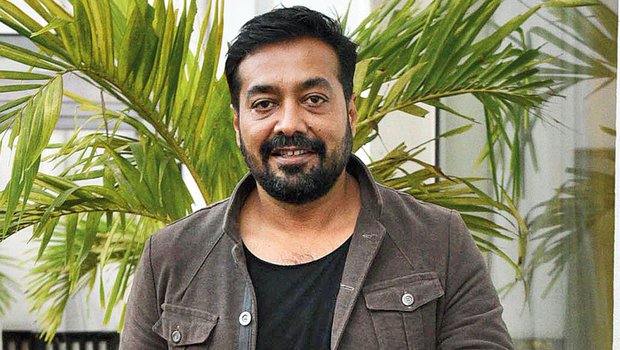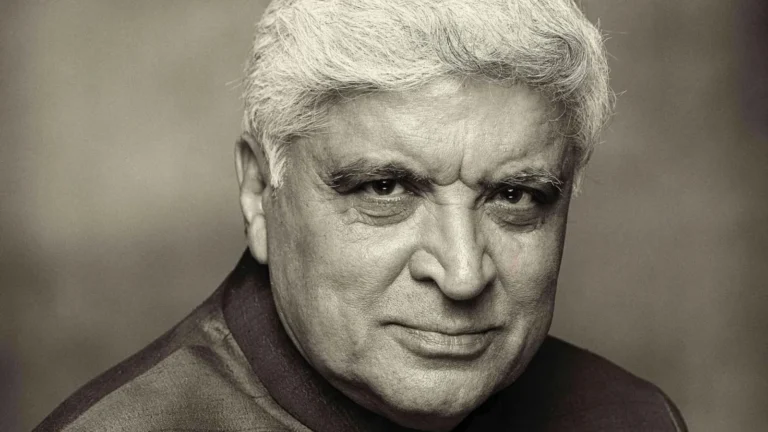Anurag Kashyap: The Maverick Filmmaker Who Transformed Indian Cinema
Anurag Kashyap is one of India’s most iconic filmmakers, known for his gritty storytelling, realistic narratives, and uncompromising vision. As a pioneer of independent cinema in Bollywood, Kashyap’s films explore the darker side of human emotions and society, often highlighting themes of violence, crime, and morality. With a career spanning over two decades, he has redefined the boundaries of Indian cinema, offering audiences a raw, unfiltered portrayal of life.
In this article, we delve into Anurag Kashyap’s journey, his rise as an influential director, his significant works, and his lasting impact on Indian cinema.
Anurag Kashyap : Early Life and Background
Childhood and Influences
Anurag Kashyap was born on September 10, 1972, in Gorakhpur, Uttar Pradesh. Raised in a middle-class family, his early years were marked by a fascination with literature, particularly Russian novels and Hindi poetry. Kashyap’s love for storytelling developed during his childhood, with films, books, and local folklore all contributing to his worldview. Despite being inclined toward the arts, Kashyap’s family encouraged him to pursue a traditional career.
Kashyap initially enrolled at Hansraj College, University of Delhi, to study Zoology, but his passion for cinema soon took over. After watching Vittorio De Sica’s Bicycle Thieves at an international film festival in India, Kashyap was inspired to pursue filmmaking. This marked the beginning of his journey to become a filmmaker, and he moved to Mumbai in the early 1990s to chase his dreams.
Struggles and Early Career
Kashyap’s early years in Mumbai were fraught with challenges. He faced financial difficulties, lack of industry connections, and an uphill battle to break into the highly competitive film industry. Despite these struggles, he was determined to make his mark. His early work involved writing scripts and short stories, some of which eventually gained recognition.
His first major breakthrough came when he co-wrote Satya (1998), directed by Ram Gopal Varma. Satya was a groundbreaking film that portrayed the underworld in a raw, unfiltered way, marking a departure from Bollywood’s mainstream narratives. The film’s success established Kashyap as a promising writer and opened doors for him to start working on his own projects.
Anurag Kashyap Directorial Debut and Rise to Fame
Paanch: A Bold Beginning

Anurag Kashyap’s debut film, Paanch, was based on the real-life Joshi-Abhyankar serial murders in Pune during the 1970s. The film followed a group of rebellious friends involved in a series of crimes, portraying a gritty and disturbing narrative. However, due to its bold content, violence, and unorthodox approach, Paanch faced censorship issues and was not released commercially. Despite this setback, Paanch earned Kashyap a cult following and introduced him as a filmmaker unafraid to challenge norms.
Though the film was not released, its screenplay and treatment brought him critical acclaim within the film community. Paanch set the tone for his future projects, showcasing his commitment to exploring unconventional and darker themes in his films.
Black Friday (2004): A Breakthrough Success
Kashyap’s first major success as a director came with Black Friday (2004), based on the 1993 Bombay bombings. The film, adapted from Hussain Zaidi’s book, offered a detailed and realistic portrayal of the bombings, the investigation, and the lives affected. Known for its documentary-style treatment and intense storytelling, Black Friday was widely praised for its authenticity and depth.
Though Black Friday faced its own set of challenges with censorship, it was eventually released and became a critical success. The film’s raw approach to storytelling and its realistic portrayal of a sensitive issue solidified Kashyap’s reputation as a bold and fearless director. Black Friday also opened doors for him in the independent film circuit, marking a turning point in his career.
Defining the Gritty, Realist Aesthetic in Indian Cinema
No Smoking (2007): Experimenting with Dark Themes
After Black Friday, Kashyap continued to explore unconventional narratives with No Smoking, a psychological thriller inspired by Stephen King’s short story “Quitters, Inc.” Starring John Abraham, the film followed the story of a man attempting to quit smoking, only to face surreal and often nightmarish consequences. No Smoking was an experimental project that received mixed reviews due to its dark, complex narrative and its departure from mainstream Bollywood.
Despite its polarizing reception, No Smoking reflected Kashyap’s commitment to unique storytelling and his willingness to take risks. The film gradually became a cult favorite and has since been appreciated for its thematic depth and symbolism. No Smoking exemplifies Kashyap’s interest in dark, psychological narratives that challenge traditional cinematic conventions.
Dev.D (2009): A Modern Classic
One of Kashyap’s most iconic films, Dev.D, was a modern adaptation of the classic novel Devdas by Sarat Chandra Chattopadhyay. Dev.D reimagined Devdas as a young man dealing with heartbreak and addiction, exploring themes of love, loss, and self-destruction. The film’s bold portrayal of contemporary relationships and its innovative cinematography made it a milestone in Bollywood.
Dev.D resonated with audiences, particularly younger viewers, and established Kashyap as a visionary filmmaker. The film’s music, vibrant visuals, and unconventional approach to a classic story marked a departure from Bollywood’s formulaic narratives, helping define a new era of Indian cinema. Dev.D became a cultural phenomenon and remains one of Kashyap’s most celebrated works.
The Gangs of Wasseypur Saga
Gangs of Wasseypur (2012): A Game-Changer

The Gangs of Wasseypur saga, released in two parts, is considered Kashyap’s magnum opus. The film, set in the coal mafia of Dhanbad, Bihar, follows the rise of rival families over several generations, blending crime, politics, and family drama. Gangs of Wasseypur was praised for its raw storytelling, character development, and dark humor, with powerful performances from actors like Manoj Bajpayee, Nawazuddin Siddiqui, and Huma Qureshi.
The film’s gritty realism, rooted in India’s socio-political landscape, earned it critical acclaim both domestically and internationally. Gangs of Wasseypur premiered at the Cannes Film Festival, marking Kashyap’s entry into the global cinema scene. The film’s success established him as one of India’s most influential filmmakers, inspiring a new wave of filmmakers to experiment with realistic, grounded storytelling.
Impact and Legacy of Gangs of Wasseypur
Gangs of Wasseypur became a cultural milestone in Indian cinema, influencing countless filmmakers and solidifying the gangster genre within Bollywood. The film’s popularity highlighted the demand for realistic narratives and showcased Kashyap’s ability to craft complex, layered stories. Gangs of Wasseypur remains a benchmark for modern Indian cinema, known for its powerful storytelling, intricate characters, and unapologetic portrayal of India’s socio-political environment.
Anurag Kashyap Expanding into Digital Content
Sacred Games (2018): Bringing Indian Stories to a Global Platform
With the rise of streaming platforms, Anurag Kashyap embraced digital content and co-directed Sacred Games, India’s first Netflix original series. Based on Vikram Chandra’s novel, the series follows police officer Sartaj Singh and his pursuit of crime lord Ganesh Gaitonde. Kashyap directed the segments focusing on Gaitonde, played by Nawazuddin Siddiqui, while Vikramaditya Motwane directed the rest of the series.
Sacred Games was a critical and commercial success, expanding Kashyap’s reach to global audiences. The series was praised for its bold storytelling, complex characters, and high production values, marking a new chapter in Indian digital content. Kashyap’s involvement in Sacred Games showcased his adaptability to new media, helping redefine Indian storytelling for a global platform.
Ghost Stories (2020) and Exploring Horror
In Ghost Stories, a Netflix anthology directed by Karan Johar, Zoya Akhtar, Dibakar Banerjee, and Kashyap, he explored the horror genre. Kashyap’s segment in the anthology focused on psychological horror, a departure from his usual themes of crime and realism. Though received with mixed reviews, Ghost Stories reflected Kashyap’s willingness to experiment with different genres, highlighting his versatility as a filmmaker.
Kashyap’s work in digital content has allowed him to reach new audiences and continue experimenting with diverse themes, establishing him as a versatile director unafraid to take creative risks.
Influence and Legacy in Indian Cinema
Inspiring a New Wave of Filmmakers
Anurag Kashyap’s impact on Indian cinema extends beyond his films; he has inspired a generation of filmmakers to embrace authenticity, realism, and innovative storytelling. Directors like Vikramaditya Motwane, Neeraj Ghaywan, and Vasan Bala have credited Kashyap as a mentor and a source of inspiration. His commitment to realistic narratives, coupled with his success in independent cinema, has encouraged others to pursue unconventional stories and challenge Bollywood’s norms.
Contributions to Indian Independent Cinema
Through his work with production companies like Phantom Films, which he co-founded with Vikramaditya Motwane, Vikas Bahl, and Madhu Mantena, Anurag Kashyap has championed Indian independent cinema. Phantom Films became a platform for promoting bold, offbeat stories, producing films like Queen, Masaan, and Udta Punjab, which brought fresh voices and unique perspectives to the forefront of Indian cinema. These films received critical acclaim and success, demonstrating that stories centered on social issues and personal struggles could resonate with mainstream audiences.
Kashyap’s involvement in Phantom Films helped bring attention to India’s independent film industry and encouraged filmmakers to experiment with themes that mainstream Bollywood often overlooked. By supporting new talent and creating a space for unconventional stories, Kashyap has left an indelible mark on Indian cinema, fostering an ecosystem where creativity and authenticity are celebrated.
Anurag Kashyap : Challenges and Controversies
Censorship and Creative Freedom

Throughout his career, Anurag Kashyap has faced challenges due to censorship and opposition from regulatory bodies. Many of his films, such as Black Friday, Paanch, and Ugly, faced censorship hurdles for their bold and often controversial content. His commitment to realistic portrayals of social issues, crime, and the underbelly of society led to clashes with the Central Board of Film Certification (CBFC) and delayed or limited releases.
Kashyap has been a vocal advocate for creative freedom in Indian cinema, challenging censorship norms and speaking out against restrictions on artistic expression. His battle with the CBFC and his efforts to secure his films’ release underscore his dedication to telling stories that are authentic, impactful, and thought-provoking.
Personal Challenges and Resilience
Kashyap has also faced personal and professional setbacks, including the dissolution of Phantom Films in 2018 following controversies surrounding co-founder Vikas Bahl. Despite these challenges, Kashyap has continued to create groundbreaking work and contribute to the industry. His resilience in the face of setbacks has made him a respected figure in Bollywood, admired for his courage to pursue his vision, regardless of obstacles.
Anurag Kashyap’s Influence on Modern Indian Cinema
Redefining Storytelling in Bollywood
Anurag Kashyap’s career has redefined storytelling in Indian cinema, introducing audiences to gritty realism, complex characters, and narratives that challenge conventional norms. His films highlight the intricacies of human behavior and societal issues, moving away from Bollywood’s traditionally glamorized portrayals. By focusing on stories that resonate with real-life struggles, Kashyap has established a genre of filmmaking that appeals to audiences seeking authenticity and substance.
Directors and writers have drawn inspiration from Kashyap’s approach, with his influence evident in films and series that embrace realism, moral ambiguity, and diverse characters. His impact on storytelling has encouraged Bollywood to expand its creative boundaries, catering to viewers seeking more than the traditional formula of romance and action.
A Lasting Legacy in Indian Independent Cinema
Anurag Kashyap’s legacy lies in his unwavering dedication to independent cinema and his commitment to amplifying voices often overlooked in mainstream Bollywood. He has created a path for aspiring filmmakers who want to pursue storytelling that is both meaningful and challenging. Kashyap’s journey from writer to director and producer reflects his love for cinema and his desire to push the limits of what Indian films can achieve.
By nurturing new talent, producing socially relevant films, and contributing to the growth of Indian independent cinema, Kashyap has cemented his status as a transformative figure in the industry. His influence continues to inspire filmmakers to embrace individuality, take risks, and pursue creative expression without compromise.
Conclusion: Anurag Kashyap’s Bold Vision and Enduring Impact
Anurag Kashyap’s journey in Indian cinema reflects a filmmaker committed to realism, authenticity, and social relevance. From his early days as a struggling writer to becoming a visionary director and producer, Kashyap has consistently challenged Bollywood’s norms, introducing audiences to stories that captivate and provoke thought. His films, whether mainstream or independent, stand out for their depth, daring subject matter, and unflinching portrayal of society.
Kashyap’s impact on Indian cinema extends far beyond his body of work; he has redefined the cinematic landscape and provided a platform for voices often unheard. As he continues to experiment with new themes and formats, his legacy as a trailblazer in Bollywood remains unmatched. Through his courage to take risks, Anurag Kashyap has created a space in Indian cinema for unique, challenging stories, leaving an enduring mark on audiences and the industry.



